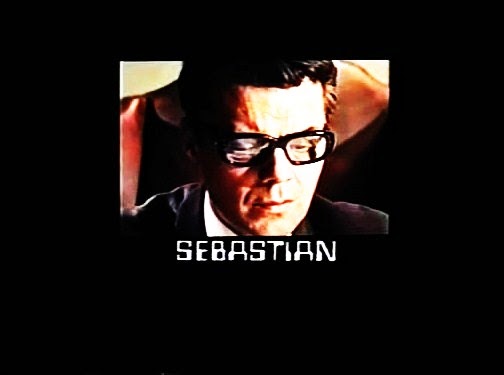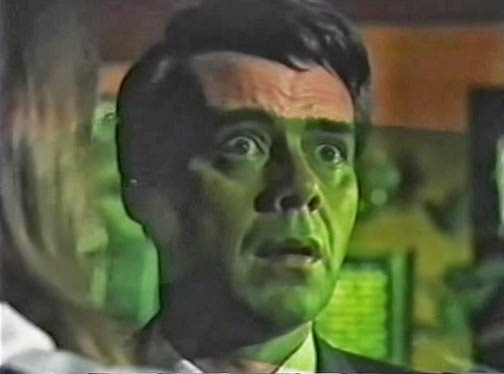
I don’t know exactly what it is about ‘Sebastian’, but I really, really like it. Ostensibly a somewhat frothy mix of Swinging London tropes and Cold War cliché, there’s an element of truth in its somewhat patchy narrative that I find irresistible. It also has really good music, mainly by the amazing American composer Jerry Goldsmith, with some electronics from Tristram Cary.
Dirk Bogarde stars as Sebastian, a supercilious academic who
just happens to be the Government’s top code breaker, presiding over an all-female
staff in some anonymous London skyscraper. These days I suppose he’d have
Asperger’s or something but, in 1968, he’s simply portrayed as a spiky super genius
with commitment issues, some odd bod habits and horrible wallpaper that he hasn’t even noticed.
Into his drab and monomaniacal life drops Susannah York, a dizzy
dolly with a penchant for direct action and tiny dresses. When he realises she
can make a dozen words out of ‘thorough’ without blinking, he immediately adds
her to his pool of clever ladies (women are better are cracking codes,
apparently), but his interest in her is always more than professional, which is
not particularly surprising as she is absolutely adorable. Things become complicated when an old flame is
forced to sell him out to the Enemy, and things get really weird when the other
side feed him LSD and try to get him to jump off a roof on the pretext that he
can fly*.
It’s an all over the place sort of thing, half based on the
true life exploits of Leo Marks (look him up – fascinating fellow), half
seemingly made up on the spot. It struggles to decide what it's really about, and giddily (and endearingly) veers between genres and styles and changes tone from scene to scene. But everyone in it is good, and Bogarde and York make
a lovely couple, however unlikely the pairing may initially seem.
As you may recall, Bogarde grew to despise the ‘triviality’ of
his early films so, after the mid-sixties, went all out to star in as many ‘masterpieces’
as possible, with often quite tedious results. ‘Sebastian’ is slap bang in the
middle, a frivolous masterpiece, if you will**. I love it, not just because the
marvellous Michael Powell had a hand in it, but also because, every time I
watch it, frothy and a bit giddy or not, I just really ENJOY it.
* This is the only film in which Dirk Bogarde trips his tits
off on acid although, in ‘The Mind Benders’, he does trip his tits off in a
flotation tank.
** Bogarde described the film as a 'non event', one of many things he and I differ on.



















